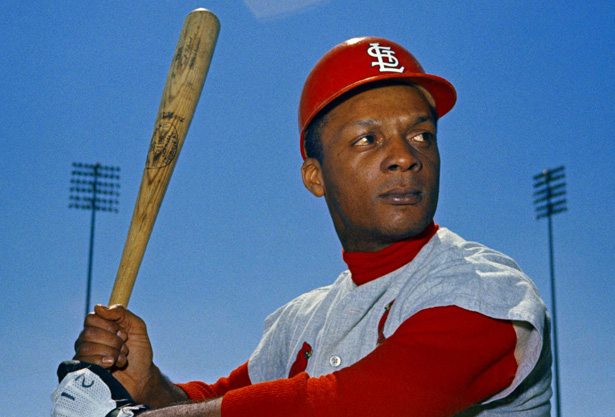The date was January 16th, 1970.
A lawsuit was filed against Major League Baseball commissioner Bowie Kuhn and the league, alleging violation of federal antitrust laws. And the person who filed the lawsuit?
St. Louis Cardinals outfielder Curt Flood.
In 1972, Flood v. Kuhn went to the Supreme Court, where the judges ruled 5-3 in Kuhn’s favor. As a result, Flood was essentially blackballed by baseball. However, it also changed the landscape of free agency, labor agreements, and reserve clauses forever. While he had lost the battle, he won the war six years later when the players successfully broke the reserve system.
And today, we will be looking at “The Cooperstown case” for the man who stood up to the system and made a change.
Flood was born on January 18th, 1938 in Houston, Texas. His MLB debut came on September 9th, 1956, for the Cincinnati Redlegs. Aside from a handful of appearances throughout the year for the team, he did not produce much. Eventually, he was traded to the St. Louis Cardinals.
That’s where his career really took off.
He batted .293, notched 1,861 hits, 636 RBI’s, turned out to be a three-time All-Star, and, as the top centerfielder for the Cardinals, won Gold Glove seven consecutive seasons, from 1963-1969. He was on three pennant-winning teams with the Cardinals and earned two World Series rings (1964, 1967). In 1968, he finished fourth in the MVP voting, which went to his teammate, Bob Gibson.
As 1969 rolled around, things began to change. Flood had clashes with management multiple times, and his overall production dipped. Nevertheless, he was still a constant part of the Cardinals’ team during the season.
Following the 1969 season, the Cardinals traded Flood, along with Tim McCarver, Byron Browne, and Joe Hoerner, to the Phillies for Dick Allen, Jerry Johnson, and Cookie Rojas. Back then, it was simple: you play for a team, then you play for that same team the next season (unless traded).
Flood would have none of that.
He sent a letter to commissioner Kuhn detailing his wishes and frustrations:
December 24, 1969
After twelve years in the major leagues, I do not feel I am a piece of property to be bought and sold irrespective of my wishes. I believe that any system which produces that result violates my basic rights as a citizen and is inconsistent with the laws of the United States and of the several States.
It is my desire to play baseball in 1970, and I am capable of playing. I have received a contract offer from the Philadelphia club, but I believe I have the right to consider offers from other clubs before making any decision. I, therefore, request that you make known to all Major League clubs my feelings in this matter, and advise them of my availability for the 1970 season.
The commissioner denied his request, and Flood, who compared the situation to slavery, sued MLB (which we stated above).
Flood v. Kuhn (407 U.S. 258) was argued before the Supreme Court on March 20, 1972. Flood’s attorney, former Supreme Court Justice Arthur Goldberg, asserted that the reserve clause depressed wages and limited players to one team for life. On the other side, Major League Baseball’s counsel countered that Commissioner Kuhn had acted for “the good of the game”.
On June 19, 1972, the Supreme Court, invoking the principle of stare decisis (“to stand by things decided”), ruled 5-3 in favor of Major League Baseball, citing as precedent a 1922 ruling in Federal Baseball Club v. National League (259 U.S. 200). Justice Lewis Powell recused himself owing to his ownership of stock in Anheuser-Busch, which owned the Cardinals.
As a result, Flood became blackballed from baseball. He played one more season in 1971 for the Washington Senators, but then his career ended.
He spent the last part of his life dealing which throat cancer and pneumonia, eventually succumbing to the illnesses in 1997 at the age of 59.
So, as I ask you all every week, does the impact made not only on baseball, but on all sports, give Flood a good case for Cooperstown?
Only time will tell…
Be sure to join back next week for yet another edition of “The Cooperstown case”!


